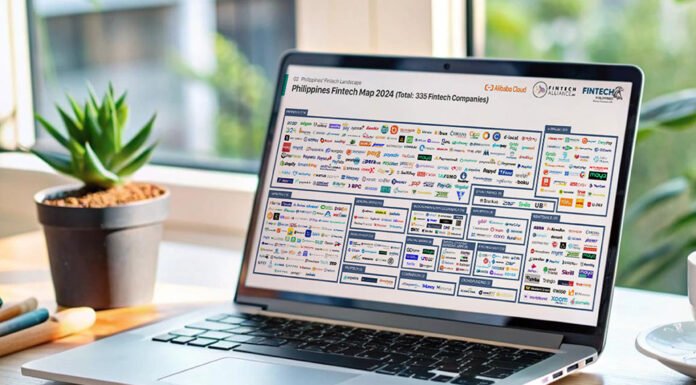Free Newsletter: Stay Updated on Fintech in the Philippines
Are you keen on keeping your finger on the pulse of the fintech revolution in the Philippines? Subscribe to our free newsletter and receive the hottest fintech news directly in your inbox once a month. With the fintech landscape in the Philippines experiencing rapid growth, there’s no better time to stay informed.
A Thriving Fintech Landscape
The fintech sector in the Philippines is booming, with over 300 companies innovating across various verticals. According to the Philippines Fintech Report 2024, produced by Fintech News Philippines in partnership with Fintech Alliance PH and sponsored by Alibaba Cloud and Zoloz, this growth is supported by robust government initiatives, increasing digital adoption, and a strong commitment to financial inclusion.
The report provides a comprehensive overview of the Philippine fintech ecosystem, highlighting significant developments and innovations from the past year, as well as key trends shaping the future.
Exceeding Digital Payment Targets
The Philippines has made remarkable strides in digital payments, exceeding its 2023 target of converting 50% of total retail payments to digital form. By the end of last year, digital payment transactions accounted for 52.8% of total monthly retail payments, a significant increase from 42.1% in 2022. This data, highlighted in the Bangko Sentral ng Pilipinas (BSP)’s 2023 Report on E-payments Measurements, indicates that the shift towards digital payments is advancing at an impressive pace.
This achievement is part of the BSP’s Digital Payments Transformation Roadmap 2020-2023, which aims to reduce reliance on cash, promote digital payments, and foster financial inclusion. The roadmap seeks to establish a robust digital finance infrastructure and introduce regulatory reforms to encourage innovation, with the goal of expanding financial inclusion to 70% of Filipino adults by 2024.
Digital Banking: Progress and Challenges
Since the launch of the first digital bank in the Philippines in 2021, the sector has seen intense competition, with only two out of six licensed players achieving profitability. The BSP anticipates that losses will continue in the medium term as the industry seeks sustainable business models and optimizes operations. It typically takes about five to seven years for a digital bank to become profitable.
Currently, six entities hold digital banking licenses: GoTyme Bank, Maya Bank, Overseas Filipino Bank, Tonik Digital Bank, UnionDigital Bank, and UNOBank. Collectively, they have generated around 8.7 million deposit accounts, representing about 7% of the total accounts in the Philippine banking sector. To further boost the sector, the BSP plans to resume accepting applications for digital banking licenses, with up to four new slots available starting January 1, 2025.
Dominance of the Payments Sector
In 2024, the payments sector continues to dominate the Philippine fintech landscape, accounting for 35.4% of all fintech companies, with 116 ventures operating in this space. Following payments are lending (22.2% with 73 companies), remittances (9.1% with 35 companies), and e-wallets (7.1% with 29 companies).
The payments sector is not only the most crowded but also the most developed, featuring major players like GCash, the first fintech unicorn in the country, and its competitor Maya, which is evolving into a financial super app with a digital banking license. The fintech sector is also the most dynamic investment segment in the Philippines, accounting for 23% of all venture capital rounds in 2023.
Advancements in Digital ID
The Philippines is also making strides in digital infrastructure with the launch of the Digital National ID in June. This initiative aims to enhance service delivery, promote inclusion, and support broader digital transformation efforts. As of July 2024, over 88 million Filipinos have registered for the Philippine Identification System (PhilSys), with 52 million physical PhilID cards issued.
The Digital National ID, which can be accessed via mobile devices, contains essential personal information and a unique QR code for verification. Two authentication platforms, National ID eVerify and National ID Check, have also been launched to facilitate personal information verification, supporting the government’s strategies outlined in the Philippine Development Plan 2023-2028.
Central Bank Digital Currency Initiatives
The BSP is advancing its efforts to implement a central bank digital currency (CBDC) through Project Agila. This initiative is part of the BSP’s broader strategy to understand and leverage digital currencies within the financial system. The proof-of-concept phase for Project Agila is expected to conclude by the end of this year, with potential for a wholesale CBDC launch during BSP Governor Eli M. Remolona Jr.’s term.
The BSP has identified various use cases for the CBDC, including liquidity management, security settlement, and cross-border payments. Phase one of Project Agila has already been completed, selecting HyperLedger Fabric’s distributed ledger technology for sandbox experiments, with two test runs currently underway.
Stay Informed and Engaged
The fintech landscape in the Philippines is evolving rapidly, with exciting developments on the horizon. By subscribing to our free newsletter, you can stay updated on the latest trends, innovations, and insights shaping this dynamic sector. Don’t miss out on the opportunity to be part of the fintech revolution in the Philippines!

